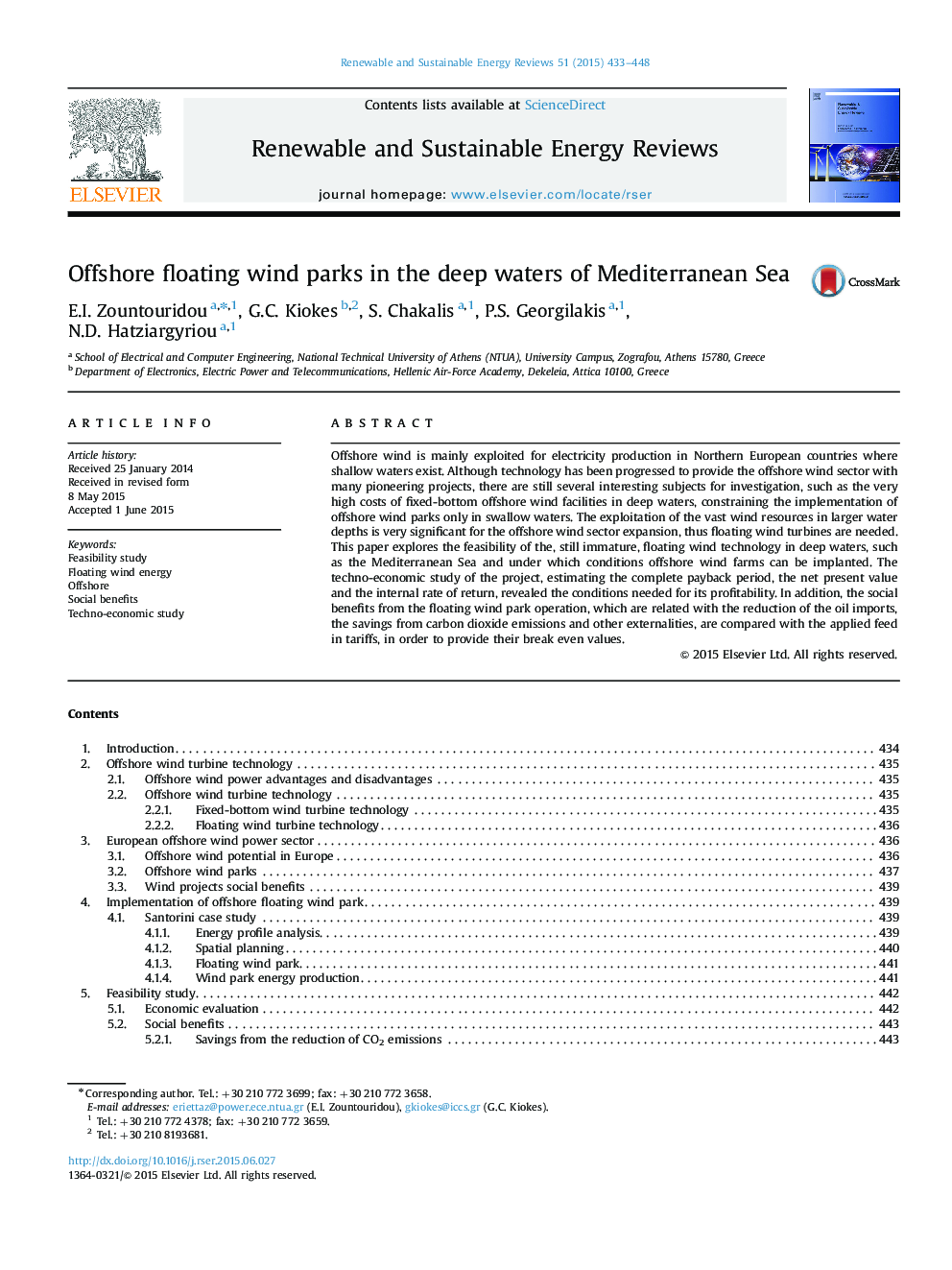| Article ID | Journal | Published Year | Pages | File Type |
|---|---|---|---|---|
| 8115723 | Renewable and Sustainable Energy Reviews | 2015 | 16 Pages |
Abstract
Offshore wind is mainly exploited for electricity production in Northern European countries where shallow waters exist. Although technology has been progressed to provide the offshore wind sector with many pioneering projects, there are still several interesting subjects for investigation, such as the very high costs of fixed-bottom offshore wind facilities in deep waters, constraining the implementation of offshore wind parks only in swallow waters. The exploitation of the vast wind resources in larger water depths is very significant for the offshore wind sector expansion, thus floating wind turbines are needed. This paper explores the feasibility of the, still immature, floating wind technology in deep waters, such as the Mediterranean Sea and under which conditions offshore wind farms can be implanted. The techno-economic study of the project, estimating the complete payback period, the net present value and the internal rate of return, revealed the conditions needed for its profitability. In addition, the social benefits from the floating wind park operation, which are related with the reduction of the oil imports, the savings from carbon dioxide emissions and other externalities, are compared with the applied feed in tariffs, in order to provide their break even values.
Related Topics
Physical Sciences and Engineering
Energy
Renewable Energy, Sustainability and the Environment
Authors
E.I. Zountouridou, G.C. Kiokes, S. Chakalis, P.S. Georgilakis, N.D. Hatziargyriou,
